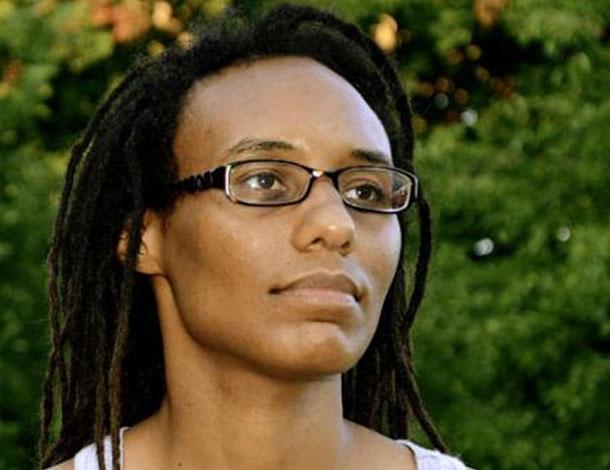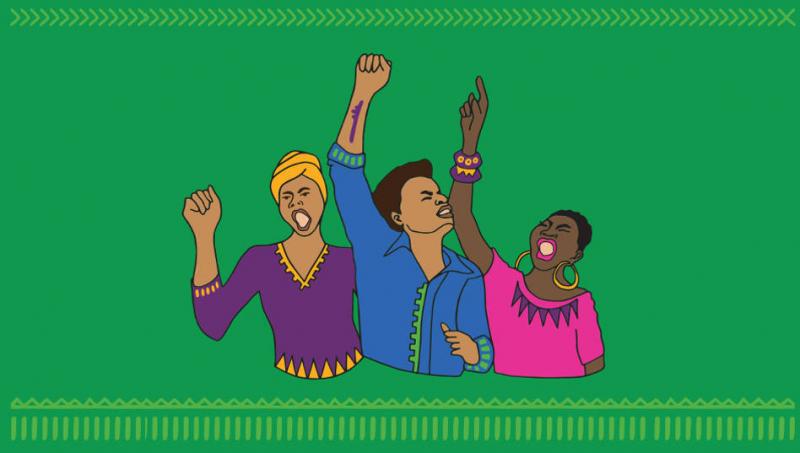Nou Led Nou La. I see you.
That is the basis for the historic gathering of over one hundred Black feminists from around the world happening in Bahia, Brazil in September 2016. I see you. Nou Led Nou La. In a world where Black women, trans*, intersex and gender non-conforming people are being forced into asserting the bottom of the barrel demand that our lives matter, ‘we acknowledge us’ is a salute to our value beyond what capitalism determines from our labor; ‘we acknowledge us’ is an affirmation of our collective experiences of survival, resistance and practices of liberation; ‘we acknowledge us’ is a salute to the presence of our futures outside of the suffocating systems that oppress us.
Black feminists have come together throughout history across our movements and our diverse political, geographic and spiritual locations. We have been the thread in the fabric of Black liberation movements globally as well as at the heart of radical movements: anti-capitalist, crip, disabled, trans*, queer, ecological etc. We have produced, in our action and our theory, knowledges that advance liberation thought and practice. Black feminists like Ella Baker advanced concepts of direct democracy and leadership that smashed patriarchal and individualistic definitions of a leader.

The wave of leaderfull and autonomous movements throughout the world is strengthened by her ideas and example. Miriam Makeba and a generation of African artists, used their art as a megaphone for protest long before the word ‘artivist’ came into lexicon. My own mother, and many other Black feminists, do pan- Africanism as actions, instead of theory, in both their daily lives and their engagement in formations for liberation. Awa Thiam brought to scholarship the intersectionality that June Jordan inscribed with the blade of her pen, that Marsh P Johnson embodied with her struggle and Thenjiwe Mtintso carried in her arms against apartheid. These Black feminists didn’t do any of this alone, they did it in collectivity with each other, building from one another and with others: I am because we are. We are one another’s co-conspirators in the deepest sense.
We may be on different continents, struggling in different movements, speaking different languages, and navigating different daily contexts but in each other we see the reflection of ourselves. It is this reflection that moved women in Uganda to raise and send money to women in Haiti after the hurricane. It is this reflection that links the Afro-Colombian women who are occupying government spaces to defend their lands, to the women of Kenya creating barricades with their bodies to protect their forests. It is this reflection that has women in Zimbabwe calling out ‘Hands Off Assata!’ and women in Philadelphia demanding ‘Bring Back Our Girls!’. It is this reflection that links #FeesMustFall with #BlackLivesMatter.
Black feminisms have had a complex relationship with the term feminism. Though some strains of feminist thought have been and continue to be dominated by those who erase us, the actions of resistance and building outside of patriarchal and gendered oppressions have long been a part of struggles for liberation that Black women, trans*, intersex and gender non-conforming peoples have waged across time and place. Black feminists globally remain firm in the fact that the chains of patriarchy cannot be overthrown without also smashing the shackles of white supremacy, capitalism and all forms of oppression. Referring to feminisms in the plural and insisting on the prefix ‘Black’ centers our global experiences and knowledges as peoples of African descent.
When I first joined AWID two years ago the organization had begun to talk with its friends, partners and allies about the 2016 AWID Forum. The dialogues were designed to take the pulse of feminist and other social justice movements about where, what and how the AWID Forum could strengthen and contribute to the co- creation of feminist futures. I was fortunate to be able to contribute to the conversations that lead the AWID board to decide that Bahia, Brazil would be the location of the 2016 Forum.
Brazil was chosen for many reasons including the important global and regional geopolitical role the country plays. It is in the throws of significant internal shifts that lay bare the contradictions of its economic rise, devastating inequalities, deep progressive traditions and the deepening religious fundamentalisms emboldened by right wing and fascist political movements. Given four centuries of European enslavement of African peoples, Brazil has the world’s second largest African population in the world. Afro-Brazilians resisted enslavement with armed insurrection and the creation of autonomous, liberated, zones called quilombos.
This resistance to enslavement and resolute commitment to freedom infused Brazil, and in particular the state of Bahia, with a particular African imprint including in the practice of Candomblé and capoeira. These legacies of liberation continue to inspire, inform and guide Afro-Brazilians in their contemporary struggles against police murder, state brutality and economic oppression. Amidst these complex country and historical dynamics, choosing the state of Bahia was an intentional recognition and celebration of the long tradition of Black and Indigenous struggles for justice and liberation in Brazil. Given this context, as well as a Forum theme that stems from the urgency of cross-movement dialogue, solidarity and co-creation, the Black and ally members of the Forum’s international planning committee expressed the need and desire to use the space to convene Black feminists and provide the space for us to dialogue across our movements.

The Black Feminisms Forum (BFF) is a baraza to revel in our reflections, to learn about the alternatives we are each creating, to build on one another’s knowledges and to strengthen our collective power. The BFF is a space to exchange strategies and tactics, to celebrate battles won while also meditating on our losses, to grieve and hold ceremony for our lost ones, and to dance to the rhythms of our resistance.
In recognition of this important movement building opportunity AWID is acting as a host to the Black Feminisms Forum but not as its lead. A powerful multi- generational, cross-movement, and geographically diverse working group of Black feminists has come together to strategize and convene the Black Feminisms Forum as a process rather than as a singular event. The Black Feminisms Forum will convene Black feminists from around the world from September 5-6, 2016, while the movement building process has already begun: in November 2015, a BFF-convened delegation of Black feminists took part in the Marcha Das Mulheres Negras in Brasilia for example. In April 2016, a BFF-convened delegation of Black feminists will take part in the African Feminist Forum convened by the African Women’s Development Fund. The BFF process will also amplify and center Black feminist voices, perspectives and knowledges, online before and in person during, the AWID Forum itself.
As we build momentum and prepare to gather, it will take Black feminists in our multiplicities to co-create the Black Feminisms Forum and to use the process to paint our radical imaginations, leverage our collective power and transform our worlds. Join us!
